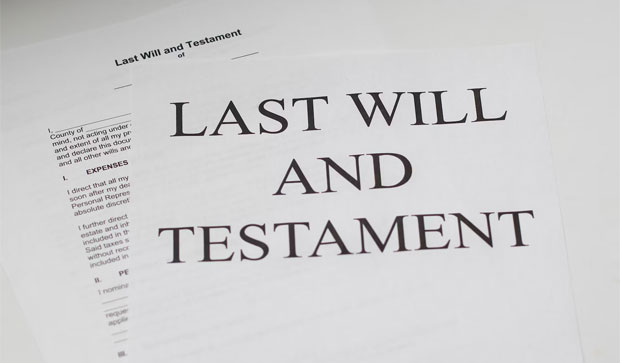Losing a Loved One: How Probate Impacts Your Family’s Future

Losing a Loved One: How Probate Impacts Your Family’s Future
Losing a loved one is a deeply emotional experience, and the legal process that follows can add significant stress during an already difficult time. One of the most important legal processes is probate, which determines how a deceased person’s assets are distributed and how debts are paid. In this article we will explore how probate impacts your family’s future.
Navigating the probate process can feel overwhelming, especially when dealing with grief. There may be paperwork to complete, assets to assess, and complex legal terms to decipher. Having a clear understanding of what to expect during probate can reduce stress and help you make informed decisions that are in the best interest of your family.
Although the probate process may seem daunting at first, gaining insight into how it works can empower you to take control. Learning about the potential effects on your inheritance and obligations enables you to make proactive decisions that protect your loved ones and their financial future.

Understanding Probate
When someone close to you passes away, the process of distributing their assets is managed through probate. It’s essential to grasp what probate entails, the impact of wills, and circumstances that necessitate this legal procedure.
Probate Explained
Probate is the legal process that ensures a deceased person’s assets are distributed as intended. During probate, a court verifies the will and appoints an executor.
This person manages the estate, pays off debts, and distributes what’s left according to the will. If there’s no will, the state’s intestacy laws kick in to determine who inherits the assets.
The process can vary in complexity. Simple estates might be resolved in a few months. More complicated estates could take a year or more. Fees, court appearances, and documentation are part of the procedure. While it can be time-consuming and costly, probate offers a legal framework for handling disputes and ensuring rightful heirs receive their inheritance.
The Role of Wills in Probate
A will is crucial in guiding the probate process. It’s a legal document that outlines how assets should be distributed after death, and it names an executor. Having a clear, well-drafted will can simplify probate, making it quicker and potentially less expensive.
When there’s a will, the executor carries out the deceased’s wishes. This might involve distributing property, managing investments, and taking care of any remaining debts. Without a valid will, the estate can become subject to the state’s intestacy laws, which may not align with the deceased’s wishes.
Creating a will reduces uncertainty. It clearly communicates how assets should be handled and who should benefit, offering assurance that a person’s wishes are respected.
When Probate Is Necessary
Probate is necessary when a person dies, leaving property only in their name. Situations where no will exists or if the estate involves solely owned assets typically require it. Joint ownership, beneficiary designations, and trust arrangements might bypass probate.
Certain situations demand probate regardless of asset arrangements. Disputes among potential heirs or creditors necessitate legal oversight to settle claims. Complex estates with varied assets often need formal administration to ensure everything is distributed appropriately.
Understanding when probate is required helps you prepare for the administrative tasks ahead, preventing surprises during this challenging time. It ensures that the deceased’s affairs are managed in accordance with legal standards.

The Emotional Toll of Probate
The probate process can bring about significant emotional challenges. You might have to manage personal grief while dealing with estate matters, and conflicts often arise among family members. Recognizing the need for emotional support can make this difficult time more manageable.
Grieving While Settling Estates
Grieving a loved one is already an intense experience; adding the responsibility of settling their estate can be overwhelming. You might feel torn between dealing with paperwork and processing the very real loss of someone close to you.
Balancing these needs can be exhausting. It’s common to experience feelings like frustration or anxiety when handling legal and financial decisions during this time.
Setting small, achievable goals each day can help. Whether it’s reviewing a document or making a phone call, it’s important to allow yourself time for both grieving and approaching probate tasks incrementally. Allow yourself patience as you navigate this challenging period. Remember, there’s no right or wrong way to grieve or handle these duties.
Conflict Resolution
During probate, differing opinions on estate matters can cause tension among family members. Disagreements might arise over asset distribution or interpretations of the deceased’s wishes. These conflicts can strain relationships.
Effective communication is essential. Try to keep discussions focused on facts and solutions. When tempers flare, taking breaks and stepping back can prevent further arguments. Using a mediator might be helpful if conflicts persist. A neutral third party can guide discussions and help reach compromises, maintaining family unity.
Support Systems During Probate
Having the right support during probate is vital. Family, friends, and professionals can provide practical and emotional assistance. Consider reaching out to those who have been through similar processes; their experiences and advice might offer relief and perspective.
Professional help, such as therapists or counselors, can support emotional well-being. Additionally, probate attorneys or estate planners can relieve some of the burdens by handling legal complexities, allowing you to focus on healing.
My Probate Partner offers cost-effective support packages, which can help guide you through the legal aspects of probate efficiently. Remember, seeking help is a sign of strength, not weakness, and it can ease the emotional weight considerably.

Planning for the Future
Thinking about the future often means contemplating how to make things easier for your family. Planning involves creating clear legal documents, selecting trusted people for key roles, and ensuring your financial assets are secure.
Creating a Comprehensive Will
A will is your opportunity to clearly express who inherits your assets. Without one, your estate may be divided according to state law, which might not match your wishes. Make sure it’s detailed and up-to-date, covering all possessions.
List your real estate, stocks, heirlooms, and personal items. Consulting with a legal professional ensures that your will complies with state laws, reducing potential disputes among family members.
Benefits of Trusts
Trusts offer a way to manage and protect assets effectively. They help avoid probate, maintain privacy, and potentially reduce estate taxes. A trust can be revocable or irrevocable, each serving different needs.
Revocable trusts offer flexibility, allowing changes during your lifetime. Irrevocable trusts can help with tax benefits and asset protection. Choose based on your specific circumstances, considering the impact on your family’s financial future.
Choosing Executors and Guardians
Selecting an executor is a decision loaded with responsibility. This person must handle your estate smoothly, pay debts, and distribute assets. Pick someone organized and trustworthy. If you have children, naming a guardian is crucial.
Choose someone who shares your values and can provide a loving home. Discuss these roles with those you intend to choose, ensuring they’re aware and comfortable with the responsibility.
Life Insurance and Beneficiary Designations
Life insurance provides financial security to your family in times of loss. Choose a plan that covers significant expenses like mortgage, education, and daily living costs. Ensure your beneficiary designations on insurance and other financial accounts are current.
Regularly review and update these designations, especially after major life changes like marriage, divorce, or the birth of a child. It’s a simple step that can prevent potential future complications.

Conclusion
Losing a loved one is an emotional and difficult experience, and navigating the probate process during such a time can add another layer of complexity. However, understanding how probate works and preparing in advance can significantly ease the burden on your family.
By ensuring that wills are in place, selecting trustworthy executors, and considering options like trusts and life insurance, you help provide clarity for your loved ones. While probate can be overwhelming, having the right legal and emotional support can make the process more manageable.
Take proactive steps today to secure your family’s future, ensuring that your wishes are respected and their well-being is protected.
Guest Article.




